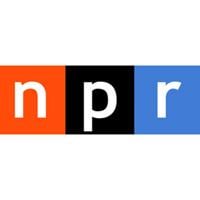[ad_1]
The risk of a federal government shutdown is again looming, and the budget that has been proposed by the House calls to defund public media. It is against that backdrop that the Center for Study of Responsive Law is calling for “more stable” funding for local public radio and television stations.
The left-leaning public interest group has released a new study that says public media lacks the required funding to meet a primary goal of public broadcasting: to reach underserved audiences, particularly children and minorities.
The CSRL study says most local NPR stations lack the resources to systematically gather and report on local news, and in turn, spend too much of its limited resources covering issues that the wealthy care about. It also notes that NPR and local public media receive public funding at roughly one-twentieth the rate of peer democracies. It also contends that NPR and local stations have given controlling majorities on their governing boards to corporate leaders, their families, and station managers. The report concludes that public underfunding and elite governance leave existing stations unable to fill the gap left by the disappearance of local, for-profit news media outlets.
“Public media is rightfully concerned that their funding is under threat from corporate advertisers, donors, and politicians; but that is ever the more reason to root themselves in local communities and advocate for the stable public funding that is necessary to pick up for the disappearance of local for-profit newsrooms,” author Michael Swerdlow writes.
The report also catalogs the many possible public financing mechanisms that could secure the material existence of the free press, insulate it from politicians and the super-rich, and ground newsrooms within the communities that they serve. “This is not a pipe dream. In fact, it is a reality in most peer democracies,” Swerdlow added.
The report also recommends that public stations work to ensure their governing boards are more representative of their communities. It also says public stations should be more transparent about their news operations.
Public advocate Ralph Nader, who founded CSRL, is sharply critical of the state of commercial radio in a forward to the study, complaining it is filled with repetitive ads and music and talk content that is overwhelmingly dominated by conservative viewpoints. But he is just as scathing in his rebuke of public radio, complaining about the number of underwriting announcements it now airs.
“Public radio was not even supposed to have advertisements. Now advertising is maddeningly omnipresent throughout the programming,” Nader says, complaining of an “omnipresent air of smugness” about NPR. “NPR has a long way to go upward,” he says. “This report offers a variety of special, sustainable funding plans for contemplation by the listening audience, the NPR journalists, staff, and governing bodies in Washington, state governments, and at the local affiliate levels.”
The attack on NPR from the left comes at the same time House Republicans have made good on their promise to zero out funding for the Corporation for Public Broadcasting. The pending budget proposal removes CPB funding from the federal budget for the 2027 fiscal year. The White House had proposed $535 million for the nonprofit corporation, which distributes federal dollars to more than 1,500 locally managed and operated public radio and television stations nationwide. The Senate version has kept the CPB funding in its budget, however. It sets up another difference between the two chambers.
If the funding cut were to hold, it would end a long-running policy in place since President Ford in 1975 that’s given advance funding to public broadcasters to let them make forward-looking programming decisions.
[ad_2]
Source link

